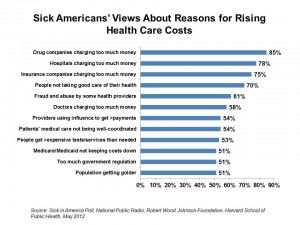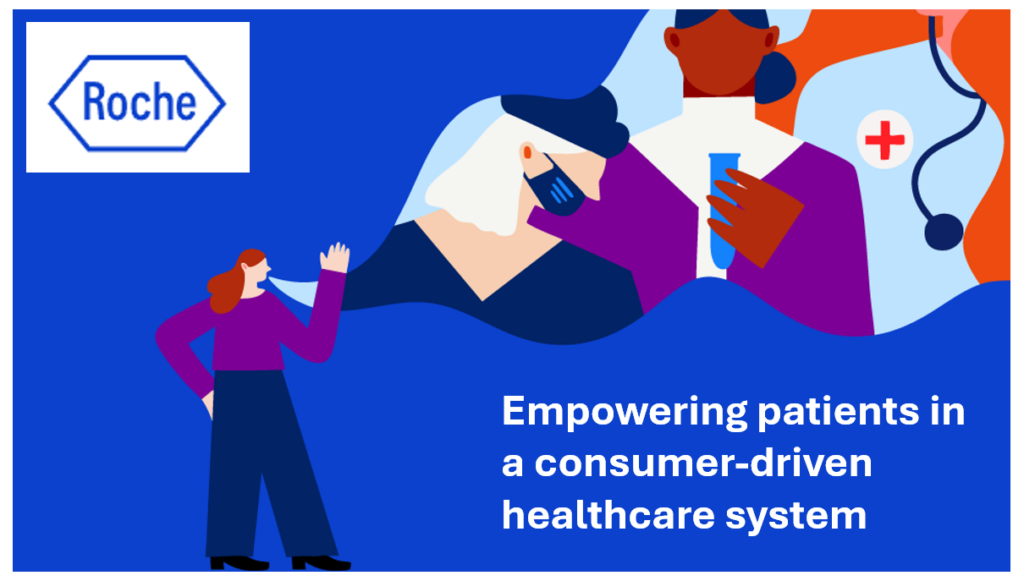9 in 10 Americans who know the health system — those with a serious illness, medical condition, injury or disability — believe that health care costs are a serious problem for the nation. This problem has gotten worse over the last 5 years, according to 70% of sick Americans.
The Sick in America Poll, from National Public Radio, Robert Wood Johnson Foundation, and the Harvard School of Public Health, was released May 2012. The survey presents a picture of the 27% of Americans who use the health system and, as a result of their illness or disability, encounter financial challenges.
When asked what factors are responsible for rising health care costs in the U.S., large majorities of ill Americans say “it’s the charges,” pointing to organizations charging too much money for products and services: these include drug companies (85%), hospitals (78%), insurance companies (75%), and doctors (58%).
But 70% of patients also say that it’s people not taking good care of their health that’s driving up health care utilization and, thus, costs for more medical treatment. [This is the argument for avoidable health costs — conditions amenable to prevention — often discussed in Health Populi].
Other cost drivers cited by the sick are fraud and abuse (61%), lack of coordinated care which leads to duplication of tests and treatments (54%), and 51% of people noting population aging, government regulation, and Medicare and Medicaid spending out of control.
Health Populi’s Hot Points: There’s an important data point that might get lost in the mass media coverage of this poll, but critical for solving the problem of costs and bending that increasing curve: that is, getting patients more involved in their own care. The sick patients polled in this survey recognize that people aren’t taking good care of themselves, which leads to greater health spending. When asked the question, “When you go see a doctor for a specific medical issue, would you prefer the doctor focus on just trying to resolve the issue or the doctor spend time discussing other, broader health issues that might affect your long-term health,” 72% of patients preferred the later, more global health approach to personal health.
This means that patients seek greater time with physicians: 47% told the pollsters that doctors and nurses don’t spend enough time with patients in a question on reasons for problems with quality of care, along with 44% saying people not following through on the advice or treatment recommendations of their doctors.
Patients familiar with the health system recognize that the system is broken — lacking coordination of care, team-based care and communication, and a workflow that brings patients into communications and self-care loops. Patient-centered medical homes, coupled with arming patients with patient-centered designed tools and communications platforms that patients will want to use, would help to close the patient engagement gap that’s leading to ineffective health spending.





 I was invited to be a Judge for the upcoming
I was invited to be a Judge for the upcoming  Thank you Team Roche for inviting me to brainstorm patients as health citizens, consumers, payers, and voters
Thank you Team Roche for inviting me to brainstorm patients as health citizens, consumers, payers, and voters  For the past 15 years,
For the past 15 years,